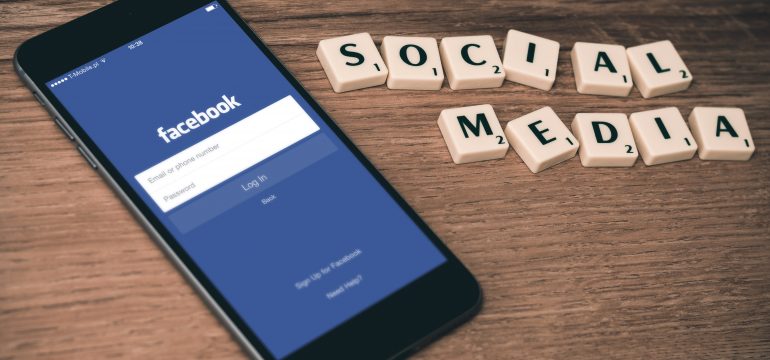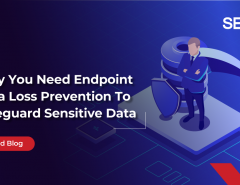Unless you have been living under a rock, you must have obviously heard of the name Cambridge Analytica and felt the reactions arising from the scandal which threatens to rock the giant of social networking, Facebook.
Things are only getting more complicated, by the day. A campaign to delete Facebook with the official hashtag “#DeleteFacebook” is only getting more popular with even the WhatsApp co-founder advising everyone to delete the popular social networking application. If making sense of everything is getting a little too much, here’s an explainer which tries to break things down for you.
What is Cambridge Analytica and why is it important?
Cambrige Analytica is an American data mining and communication firm which finds itself in the eye of the storm. It is an offshoot of the British Strategic Communication Laboratories (SCL) and was founded in 2013 specifically with a focus on impacting elections in the United States.
The firm offers its services to political campaigns by analyzing data from multiple sources on electoral behavior. Initially, it was employed by Republican candidate Ted Cruz for his campaign in the United States Presidential Election. Cambridge Analytica is also reported to have played a part in Donald Trump’s successful election campaign in 2016 and for the “Leave” section in the Brexit vote in that same year.
What’s the connection with Facebook?
According to investigations made by the American and the British media, Cambrige Analytica stole personal information from 50 million Facebook user profiles. This was done by getting users to submit answers to a personality prediction application by a psychologist from the University of Cambridge Aleksandr Kogan. This application needed users to login using their Facebook account and gained access to their profiles, locations, likes and other personal data. It also gathered data on the friends of the users who downloaded the application.
This data was then sent to Cambridge Analytica – which is a violation of Facebook’s terms of service – which created psychographic profiles on 30 million of these profiles, to influence voter behavior for its clients.
How has Facebook reacted?
When the news first broke on March 16, Facebook put out a statement saying they were suspending SCL along with Cambridge Analytica. They stated that while Kogan had requested and gained access to information “in a legitimate way” and “through the proper channels”, he had violated Facebook’s policies by passing on the information to third parties. The statement went on that when Facebook became aware of this policy breach in 2015, they removed Kogan’s application from Facebook and required certifications from all parties involved that the information was deleted. However, through media reports, they had found out that the data was not deleted and hence they were now suspending all the parties from Facebook.
The platform’s founder, Mark Zuckerberg also put out a statement on Thursday admitting a “breach of trust between Facebook and the people who share their data with us and expect us to protect it”. He outlined some more steps which Facebook would perform to fix this, and took responsibility for what happened on the platform.
How does it affect Facebook?
Facebook has been in the news for the last few years regarding privacy concerns from activists and what the company does with the huge amount of data they collect from their billion-plus user base. This recent event has confirmed the fears of many of these privacy advocates. In a significant warning to other companies to take data breaches seriously, this scandal has also had severe financial repercussions on the global social networking giant. The 2017 Cost of Data Breach Study found out that the global average cost of a data breach was $3.6 million, but Facebook’s cost was much higher – a staggering $60-billion drop in market value. It also faces the possibility of renewed investigation by multiple government agencies of different countries. The resultant sequence of events has already led many to question how Facebook operates, leading to huge loss of face and a massive public relation disaster for the company.
What can organizations do?
Network administrators must start taking a close look at the different forms of user data they may collect and how they use it. The Cambridge Analytica-Facebook issue has snowballed into a global event and it’s not difficult to understand why, considering that the allegations revolved around extremely high-profile events like the 2016 US presidential election and the Brexit vote. Investigators and regulators all over the world will now be conducting investigations and taking strong steps against data misuse by organizations.
To address their concerns, organizations can consider Seqrite’s range of solutions to prevent against data losses. Seqrite’s Endpoint Security (EPS) solution offers a comprehensive platform which integrates Data Loss Protection with technologies such as Anti Ransomware, Advanced DNA Scan, Behavioural Detection System. The Data Loss Prevention feature prevents data loss by monitoring confidential and user-defined data shared through removable drives, networks and various applications.
Seqrite’s encryption solutions also protect corporate data on endpoints with strong encryption algorithms such as AES, RC6, SERPENT and TWOFISH. With features such as Full Disk Encryption, Removable Media Encryption and Traveller Tool, it provides centralized data protection solutions.
From a user perspective
If you, as a user, don’t want to take the plunge and delete Facebook, there are still ways in which you can ensure that you limit the data the social network accesses about you. You can stop using Facebook to sign in on multiple platforms, as that allows the company to track you across the Internet. You should also be very careful of third-party applications you use on Facebook and review the kind of permissions they ask when you try to use them. Finally, you should also take a deep look at the apps you have used or use till now and delete any which seem to ask you to share too much information.




